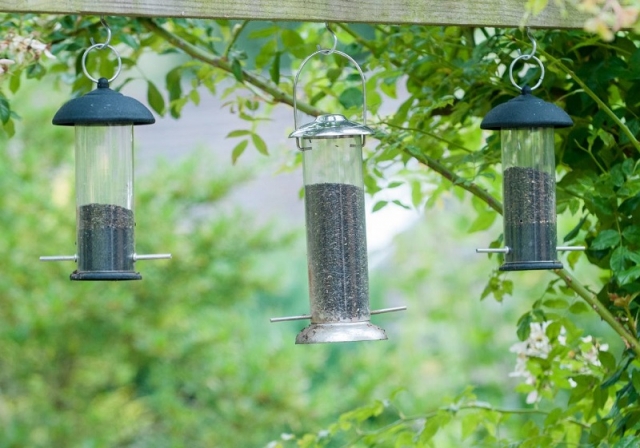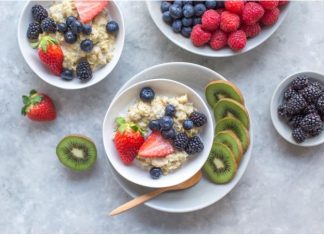One week your backyard is bustling with cardinals, chickadees, and finches — and the next, it's eerily quiet. No chirping. No fluttering wings. Just an untouched feeder and a growing sense of confusion.
If your birds have suddenly vanished, you're not alone. It's one of the most common and frustrating problems bird lovers face — especially after investing time and money into creating a bird-friendly space.
But don't worry: birds don't just disappear without a reason. In this article, we'll explore the most common causes behind empty feeders, explain how squirrels may be scaring birds off, and offer proven strategies to bring your feathered visitors back fast.
6 Reasons Birds Stop Visiting Your Feeder
If your feeder suddenly goes quiet, it's usually not random. Birds are creatures of habit, but they're also quick to adapt when something changes. Below are six of the most common reasons they might stop showing up:
- Squirrels Have Taken Over
When squirrels dominate a feeder, birds often stay away — not just because the food is gone, but because squirrels can be aggressive, noisy, and territorial. Even their constant presence can make birds feel unsafe.
- The Feeder Is Dirty
Old, moldy seed or a buildup of droppings and bacteria can deter birds or even make them sick. If they sense the area is unsafe or contaminated, they'll move on.
- You're Using the Wrong Seed
Low-quality or stale seed can cause birds to lose interest. Avoid mixes with fillers like red millet, which many birds ignore. Instead, go for black oil sunflower, safflower, or nyjer depending on your target species.
- Seasonal Changes
Birds may migrate, shift feeding grounds, or rely on natural food sources during certain times of year. Just because they're gone now doesn't mean they won't return.
- Predators Nearby
If hawks, cats, or even unfamiliar pets start frequenting the area, birds may avoid your feeder to stay safe.
- Feeder Placement or Visibility Has Changed
Birds need a clear line of sight to escape danger. If your feeder is too close to a wall, deep inside a bush, or moved recently, it might not feel secure to them anymore.
How Squirrels Silently Drive Birds Away
Most backyard bird lovers think of squirrels as just annoying seed thieves. But the real issue goes deeper — squirrels can actually disrupt your entire backyard ecosystem by pushing birds out over time.
Here's how:
- Aggression at the feeder
Squirrels aren't subtle. They jump, shake, and tip feeders while they eat, which creates a chaotic feeding environment that makes many birds feel unsafe. - Territorial behavior
Birds are surprisingly observant. If a feeder is consistently occupied by squirrels, birds will eventually stop visiting and search for quieter, less competitive spaces. - Seed depletion
A single squirrel can empty a feeder in a matter of hours. If birds come and find it consistently empty, they learn not to waste energy returning. - Stress and noise
Squirrels chatter, rustle, and bang around on feeders, which can startle birds away — especially shyer species like wrens, goldfinches, or warblers.
The result? Fewer birds, fewer species, and more frustration for you.
If you suspect squirrels are driving birds away from your feeder, it's time to take control. One of the most effective fixes is switching to a design built to keep them out. Here's a full breakdown of the best squirrel-proof bird feeders — tested to protect seed and bring the birds back.
How to Attract Birds Back to Your Feeder — Step by Step
Once birds have stopped visiting your feeder, it can take time to rebuild their trust — but with the right adjustments, you can quickly restore your backyard to full chirp mode.
Follow these steps to bring birds back:
- Clean Your Feeder Thoroughly
Wash it with warm water and mild soap or a 1:9 bleach solution. Rinse thoroughly and let it dry before refilling. A clean feeder signals safety and freshness.
- Switch to Fresh, High-Quality Seed
Toss out old or clumped seed and replace it with premium options like:
- Black oil sunflower seeds (great all-rounder)
- Safflower seeds (discourages squirrels)
- Nyjer (perfect for finches)
Avoid mixes with cheap fillers like milo and red millet.
- Relocate the Feeder If Needed
Place your feeder where it's visible but safe — ideally 5–10 feet from natural cover like shrubs or trees. Birds like to perch nearby before approaching.
- Add a Water Source
A shallow birdbath or water bowl can make your yard more attractive. Moving water (like a dripper or fountain) works even better.
- Use Multiple Feeders
Offer different types of feeders to attract a wider range of species — platform feeders, tube feeders, and suet cages each draw in different birds.
- Be Patient but Consistent
Birds rely on routine. Fill your feeder consistently, and within a week or two, your regulars (and new visitors) will likely return.
Seasonal Tips to Keep Birds Coming All Year
Bird activity changes with the seasons — and adjusting your approach throughout the year can help you maintain a steady stream of visitors, no matter the weather.
Spring
- Offer high-protein foods like suet and mealworms to support nesting birds.
- Keep feeders clean and filled — new migrants are scouting for food sources.
- Add nesting materials like pet hair or coconut fiber nearby.
Summer
- Use seed blends with less suet or fat (it melts).
- Provide shade or place feeders in cooler spots to prevent spoilage.
- Keep birdbaths full and clean — hydration is key.
Fall
- Increase food supply as birds bulk up for migration.
- Offer energy-rich options like sunflower seeds and nuts.
- Clean feeders frequently as moisture increases mold risk.
Winter
- Switch to high-fat feeds like suet cakes and black oil sunflower seeds.
- Use weatherproof feeders with covered hoods to shield seed from snow or rain.
- Consider heated birdbaths to provide drinking water when everything else is frozen.
Each season brings new visitors and challenges — but with the right mix of food, water, and shelter, you can create a reliable bird oasis all year long.
Keep the Birds, Ditch the Squirrels
If birds have stopped visiting your feeder, don't take it personally — there's almost always a fixable reason. Whether it's noisy squirrels, old seed, or poor placement, a few smart adjustments can bring life (and feathers) back to your backyard.
Start with the basics: clean your feeder, upgrade the seed, and reposition your setup. If squirrels are clearly the problem, don't waste time with tricks — switch to a feeder designed to stop them in their tracks.
With a bit of patience and the right tools, you'll not only attract more birds but enjoy the peaceful, satisfying experience that birdwatching is meant to be.






